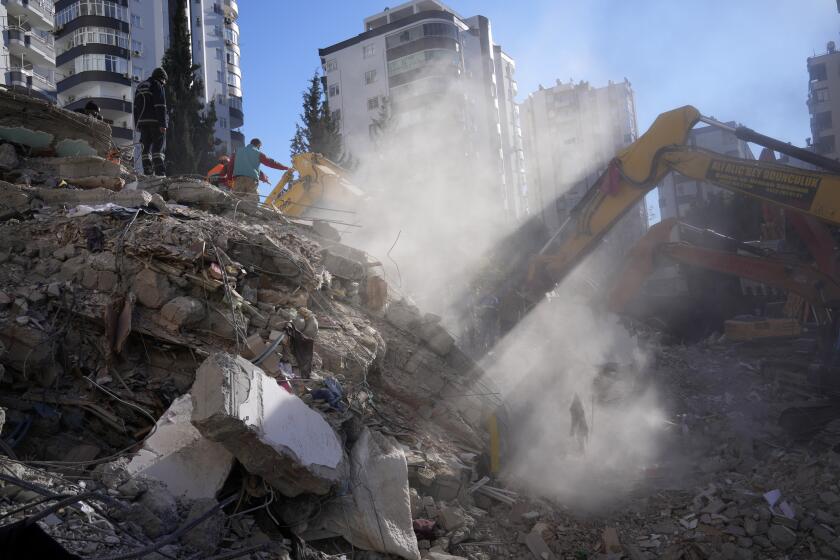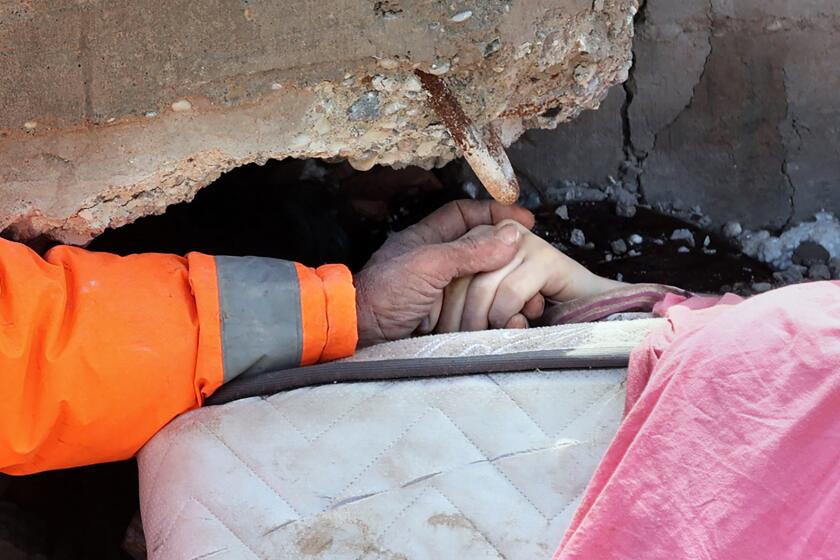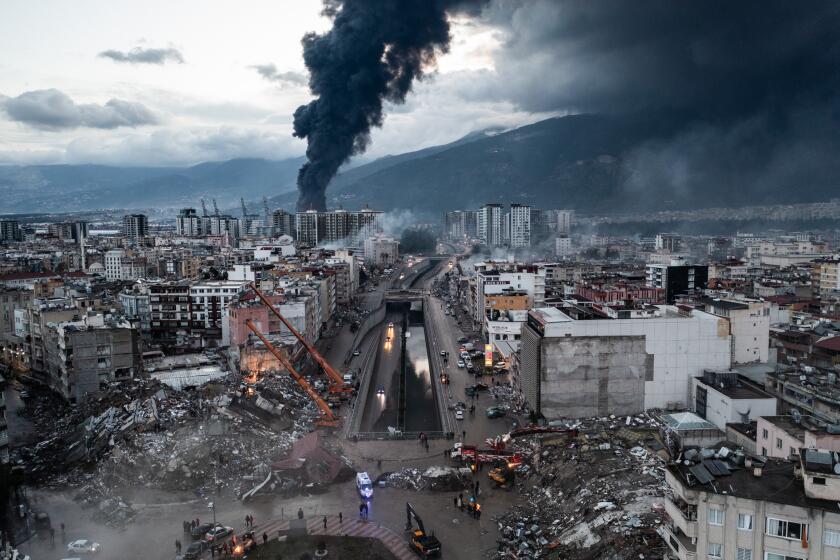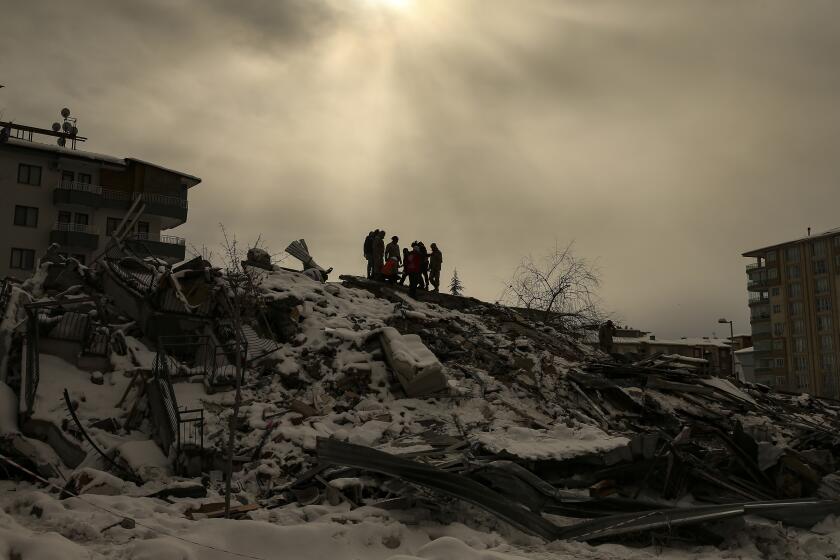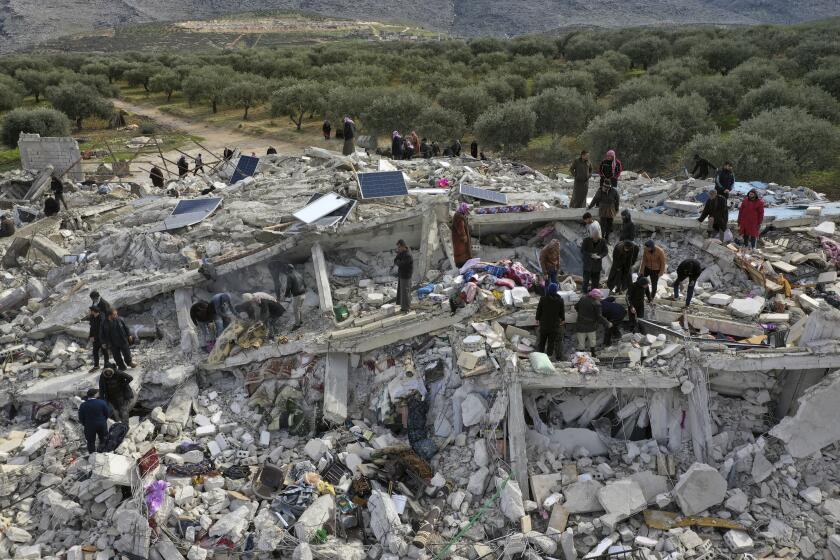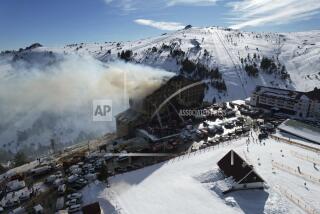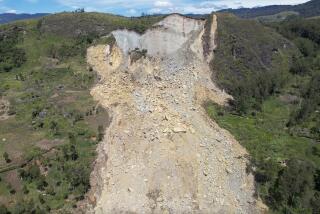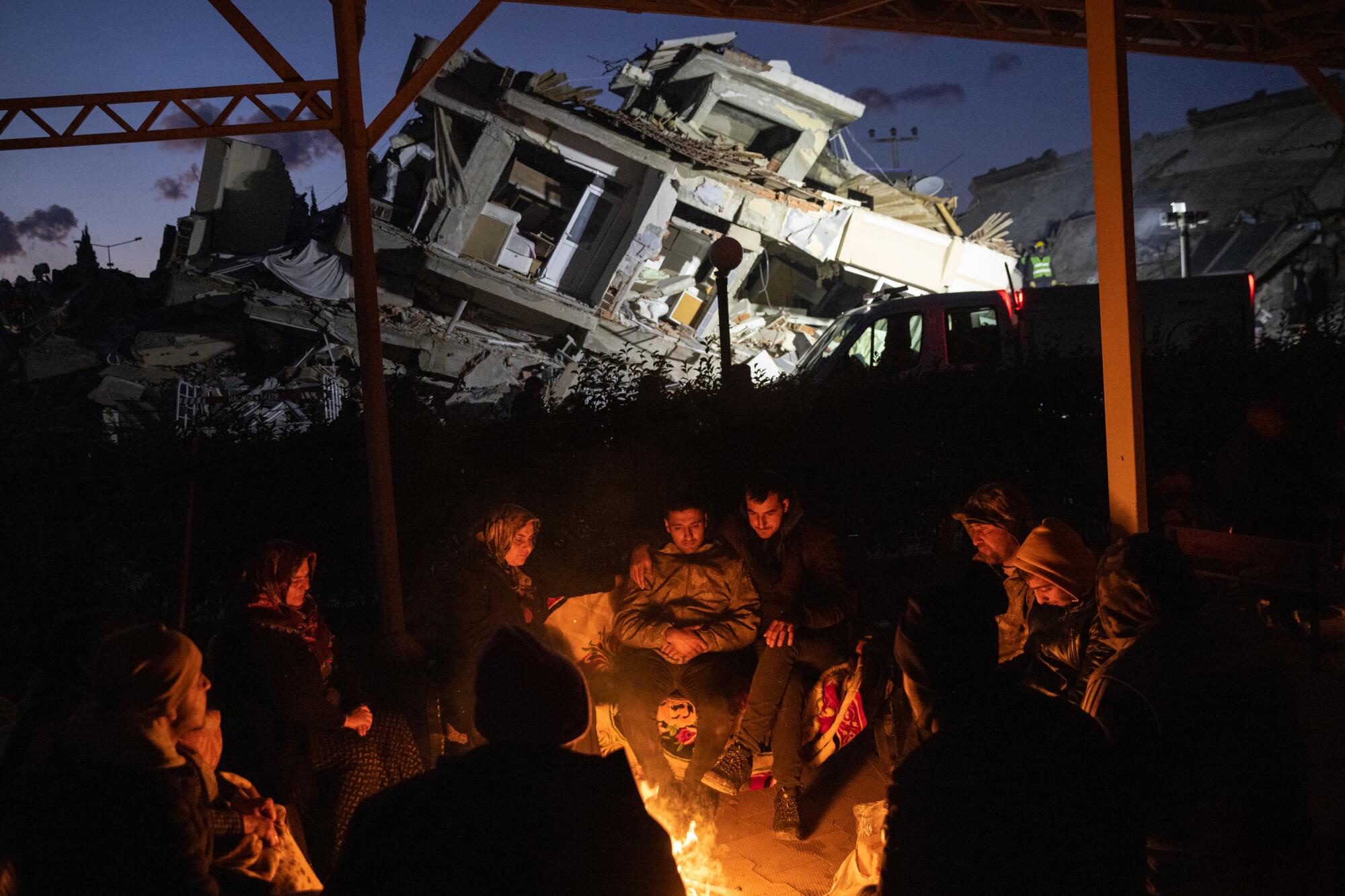
- Share via
ANTAKYA, Turkey — Sarwan Oghlu shook her head and screamed as she stood before the building that had been her family’s home, and where her youngest daughter and son, aged 12 and 7, remained, amid floors flattened one against the other.
As her sister and two daughters strained to calm her, she pleaded with God.
“Where are my kids? If you love me get me my kids. I won’t go anywhere before my kids return,” she said, her shouts made raspy by grief. “For three days I’ve been here. God, you’ve heard everyone but not me.”
She turned to a group of rescue workers standing nearby, her face rapidly shifting from sadness to rage.
“Get up! Get UP! Come on. What are you waiting for? I want my children. Go get my children,” she said, her voice breaking mid-scream. The fury in her spent, she began to sob again as one of her daughters ran her hand on her cheek to dry the tears.
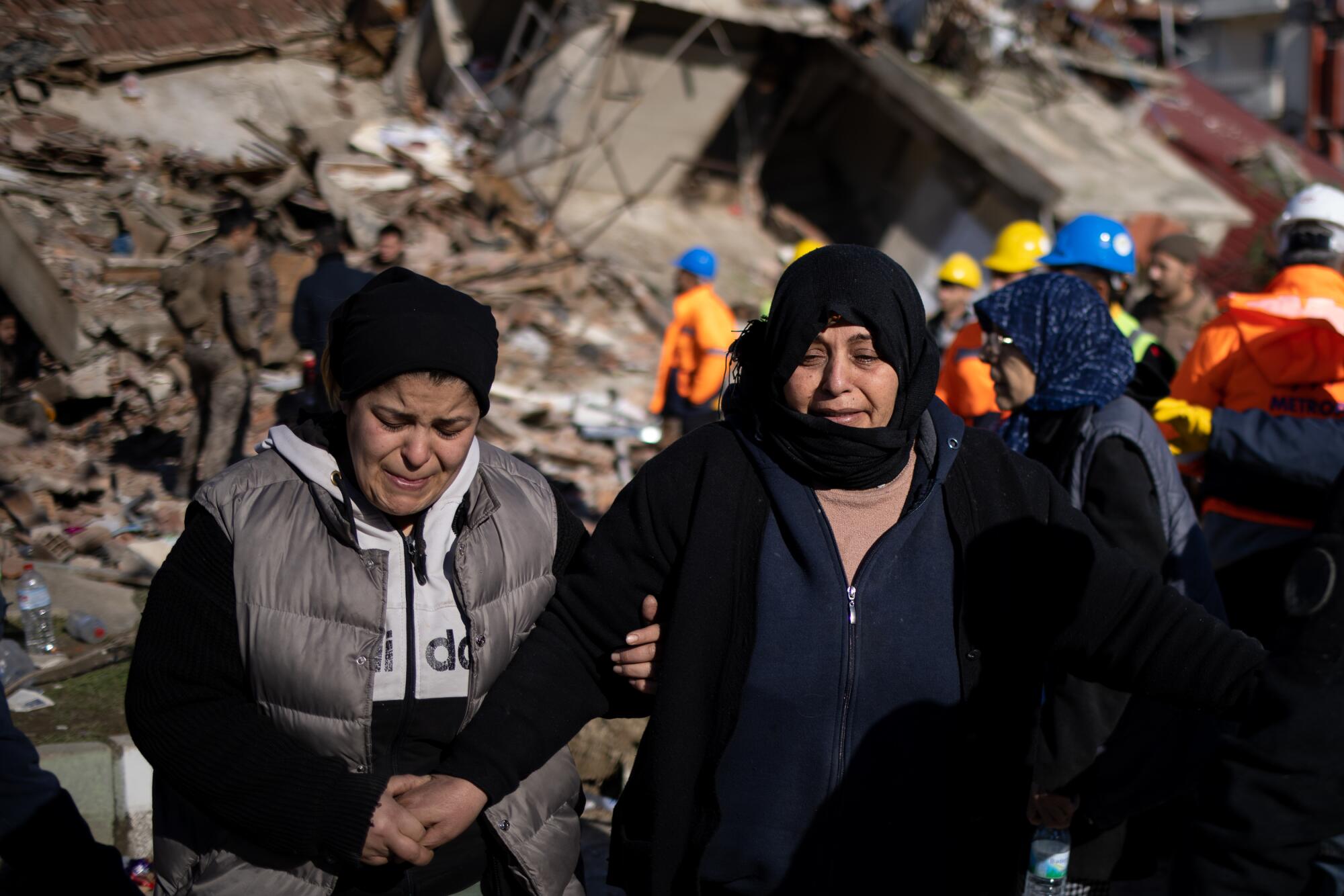
Her brother, Erde Oghlu, stood behind her, shaking his head as a bulldozer rumbled toward the wreckage.
“It’s been two days and there’s no space to crawl inside and see,” he said. “I have hope, but we haven’t heard anything. No sound, nothing.”
In the days since a catastrophic magnitude 7.8 earthquake struck southern Turkey and northern Syria, early Monday morning, killing more than 16,000 and wounding multiples more, rescue workers and volunteers have swarmed into affected areas. Officials said Wednesday that more than 100,000 disaster relief personnel were in the earthquake zone.
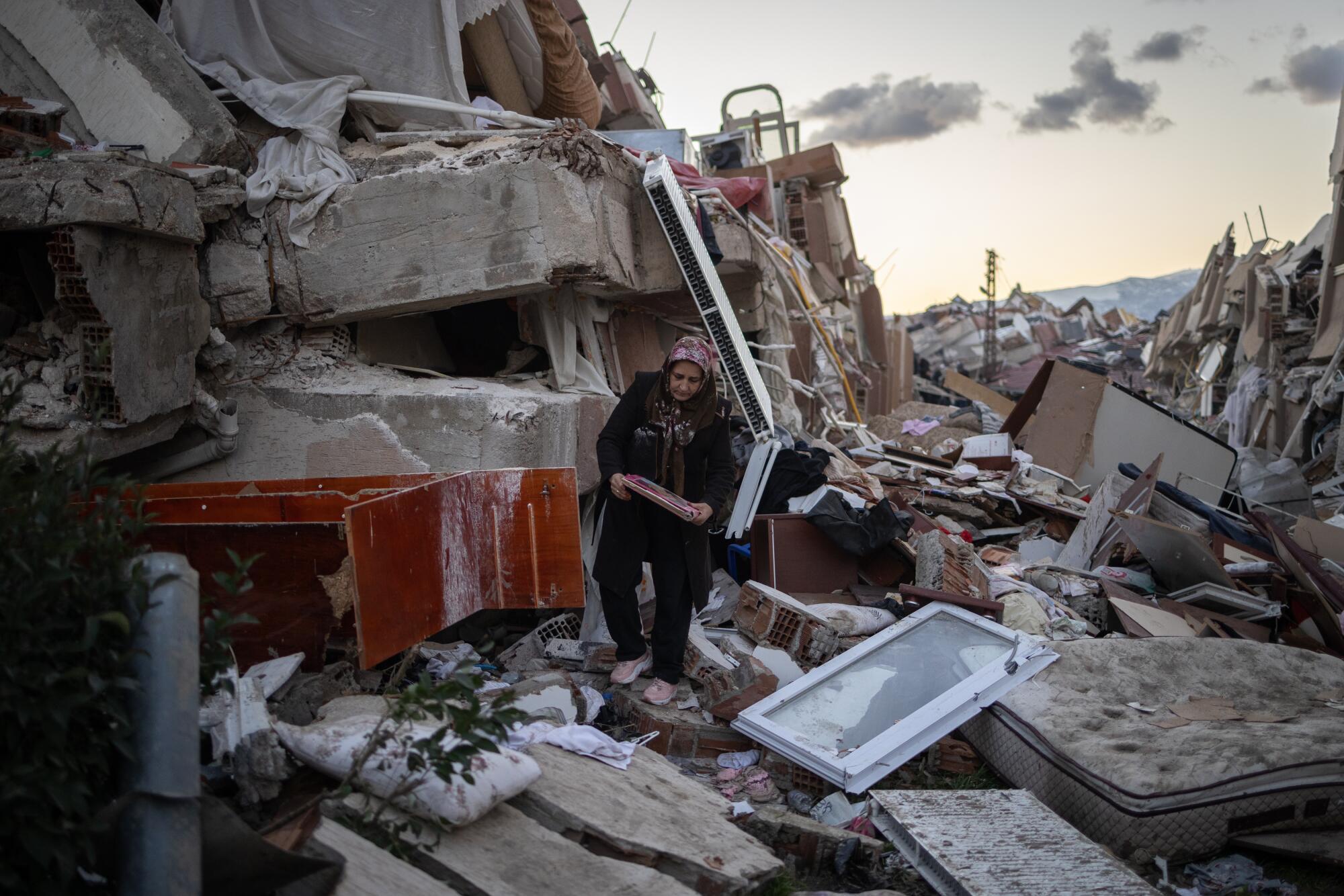
That includes Antakya, a well-appointed city in Turkey’s southwest that — though at least 120 miles away from the temblor’s epicenter — is one of the country’s most devastated.
As hundreds of rescuers work throughout the day and night in frigid temperatures, scenes of suffering and frustration similar to that of Oghlu and her family play out on almost every block of this shattered city.
“It’s a huge area to cover,” said Zeynep Akbaba, a 37-year-old academic who had driven down from Bursa, a city near Istanbul.
The fault system that ruptured in Monday’s 7.8 earthquake in Turkey also ruptured in a quake nearly 1,000 years ago — and was followed by a sequence of quakes to the south for nearly a century.
Leading a group of volunteers down the street from Oghlu’s family to another stricken part of the neighborhood, she explained that the level of carnage here had taken authorities by surprise.
“Yesterday we didn’t have any heavy machinery — it was sent to other areas closer to the epicenter,” she said. The thinking was that they were more damaged. That had changed by Wednesday, she added, gesturing toward a massive crane rising above a mound of crumbling concrete.
“But it’s still not enough.”
She had barely finished the sentence before a shout rang out above the din of machinery, and was soon echoed by others. It had come from a group of workers in an alleyway snaking through a group of buildings.
The death toll is in the thousands after a magnitude 7.8 earthquake, followed by a magnitude 7.5 quake, struck southern Turkey.
One of the buildings, mostly intact save for a horizontal crack running through its lower floors, stood askew; another had its side sheared off to reveal a worn-out bathtub and what must have once been a living room. The third building’s floors had collapsed onto themselves, leaving only the top apartments — now at the level of the first floor — accessible.
A worker thought he had heard a sound and called for silence.
Engines were quickly shut off and conversation stopped; the wail of a siren and the whump-whump of a Chinook helicopter sounded in the distance. A man climbed up to a window with a microphone and a long antenna and put headphones on; a minute later he shook his head. Another shout signaled it was OK to talk once more. Akbaba exhaled.
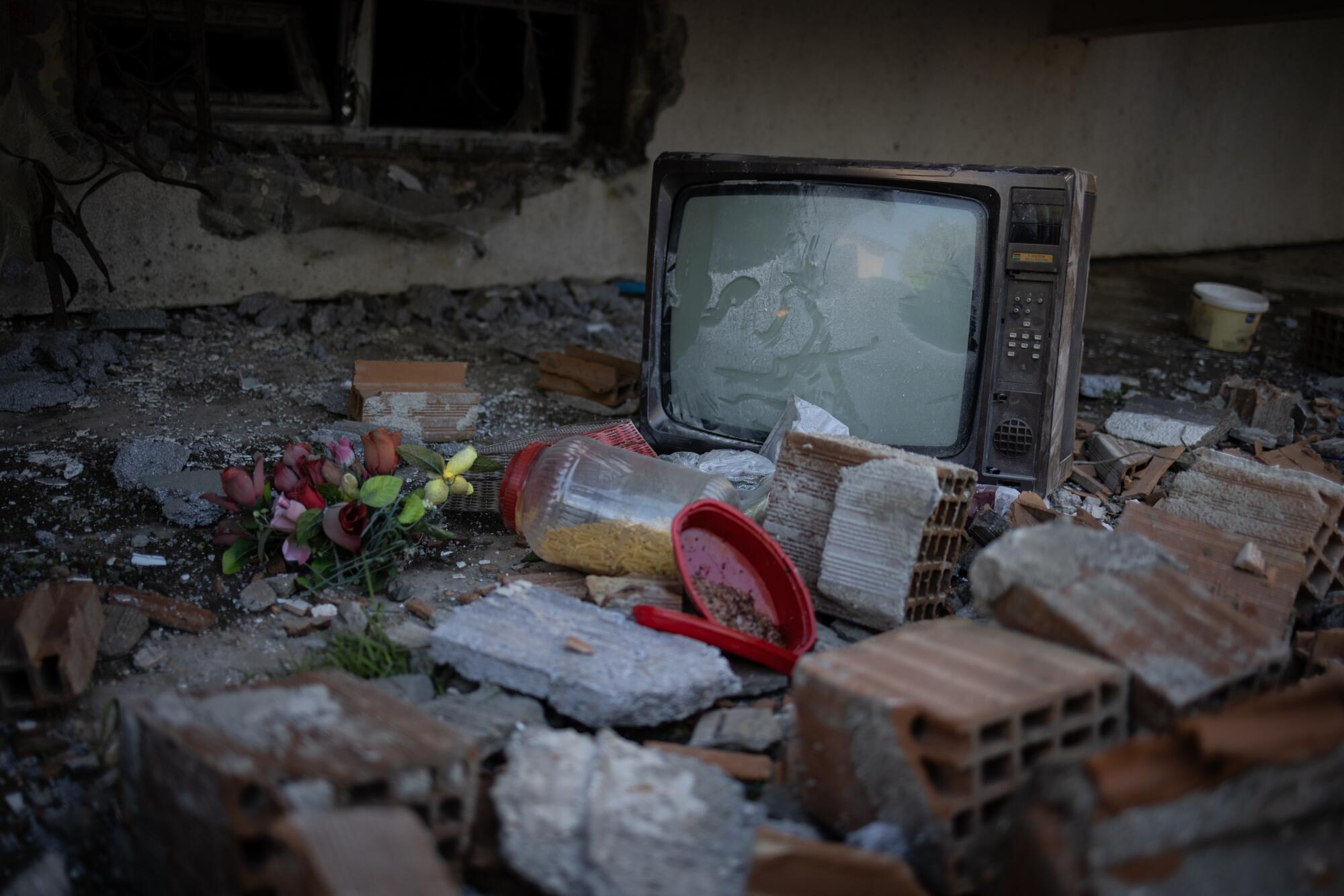
“Adults can’t survive in this situation in such a small space. It could be a baby or a child,” she said.
But the workers didn’t lose hope. One of them, named Altun, gestured to a bulldozer to approach. The driver swiveled the vehicle and extended the backhoe arm inside an opening in the building, then pulled it back, sweeping onto the ground a group of glass jars, somehow unbroken, and a water cooler. Altun climbed into the opening and peered into the space left behind before turning to the crowd.
“The concrete is just closing in here. It’s too dangerous to go through,” he said, walking to the side and lighting a cigarette.
On a parallel street, another crew worked to recover a body from an apartment block. So far that day they had removed six corpses, and the occasional smell of rotting flesh overpowering the diesel fumes of a bulldozer indicated there were more.
The earthquakes in Turkey show how big quakes are more likely to cause big aftershocks far from the epicenter. The same could happen in California.
Four team members crowded around an opening in the building’s side the bulldozer had widened with the teeth of its bucket. After 10 minutes of carefully pulling and shifting debris, the workers pulled out the body wrapped in a blanket before placing it on a silver body bag and zipping it up. Experts have said the window for finding people alive in the rubble is rapidly closing.
Some residents in surrounding Hatay province have criticized the government’s response. Turkish President Recep Tayyip Erdogan visited the province on Wednesday and acknowledged some “shortcomings.” But Erdogan, who has imprisoned dissenters, called critics “dishonorable people.”
The internet monitoring group Netblocks said access to Twitter had been restricted, even though some survivors had used it to alert emergency crews. Turkish authorities have said they are targeting disinformation and “provocative posts.”
Around the workers in Antakya were people with family members left inside buildings and others who hoped to save belongings from their homes. The latter included Elif, a 24-year-old sailor who had been working on a boat docked in Belgium. His parents and three siblings had been in the building when it fell.
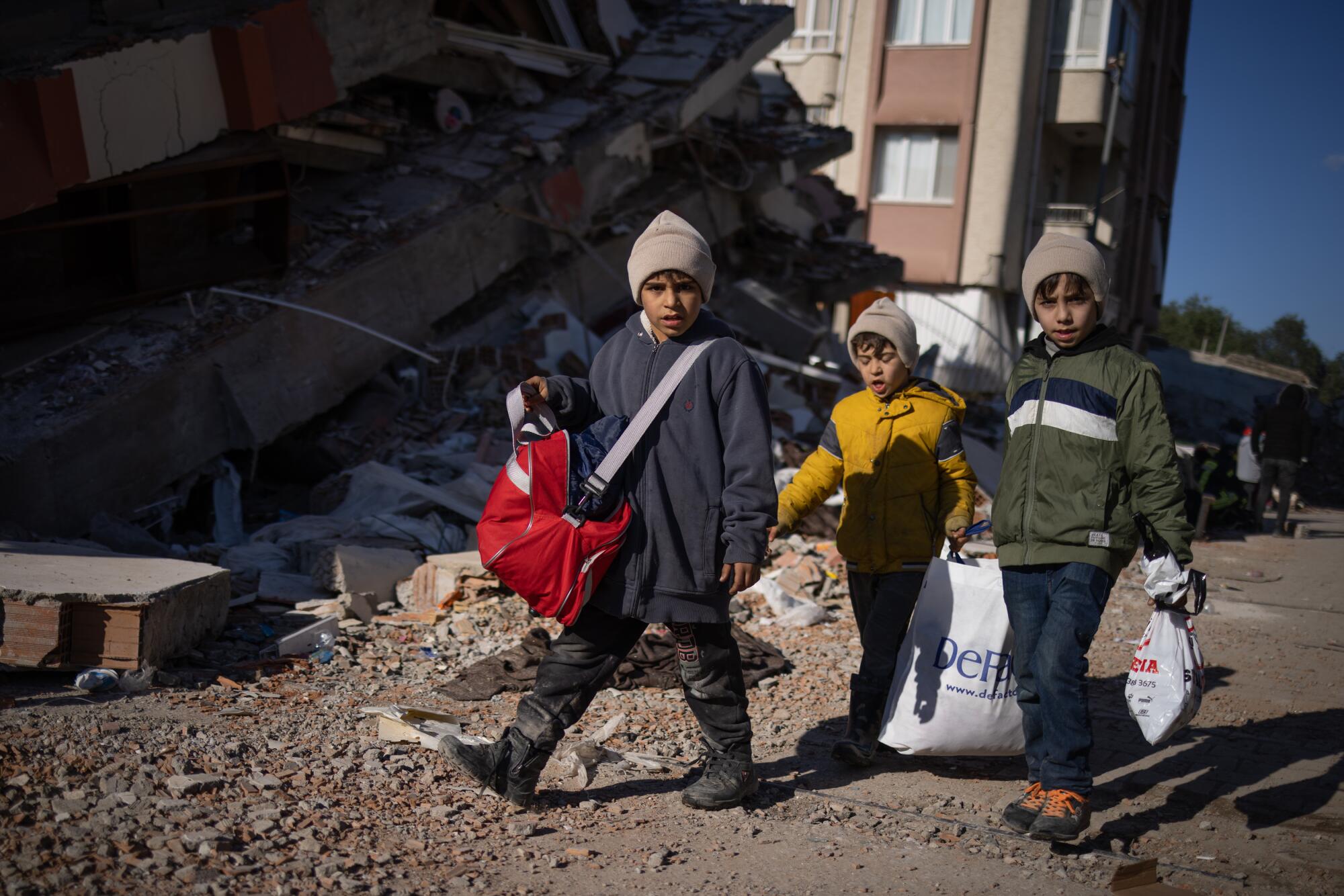
“When I heard, I kept on calling them, over and over again. No answer. I was so angry,” he said. He left for Turkey in the morning and had arrived in Antakya on Tuesday, but there was little he could do: His uncle had already buried Elif’s parents and older sister and taken the younger brother and sister to the hospital.
“I haven’t even seen them but the situation is not good. I came here first, but I can’t do anything. Even taking out bodies is impossible. Everyone is facing this problem,” he said.
He looked around him, sighing for a moment. “I want to go somewhere far from here. Nothing is left for me here.”
With more than 11,000 people dead, the magnitude 7.8 earthquake that hit Turkey and Syria is the deadliest since a 2011 temblor and tsunami in Japan.
Not far from where he stood was a neighborhood park that had been turned into a makeshift refugee center for survivors. It was a tableau of loss: Families huddled around a fire fed with pieces of wood scavenged from the remains of their homes, with what few, random belongings they could save arrayed beside them.
As night fell, they would face another issue: Where to sleep.
“Where do you think? Antakya is gone and we have no home,” said Mujahed Aktyul, a 67-year-old who had lost a nephew. Despite the grim assessment, he maintained a stoic attitude.
“My wife and I? We’re in one car. My son and his family? One car. My daughter and her four children, we’ll put in another. What else can we do?”
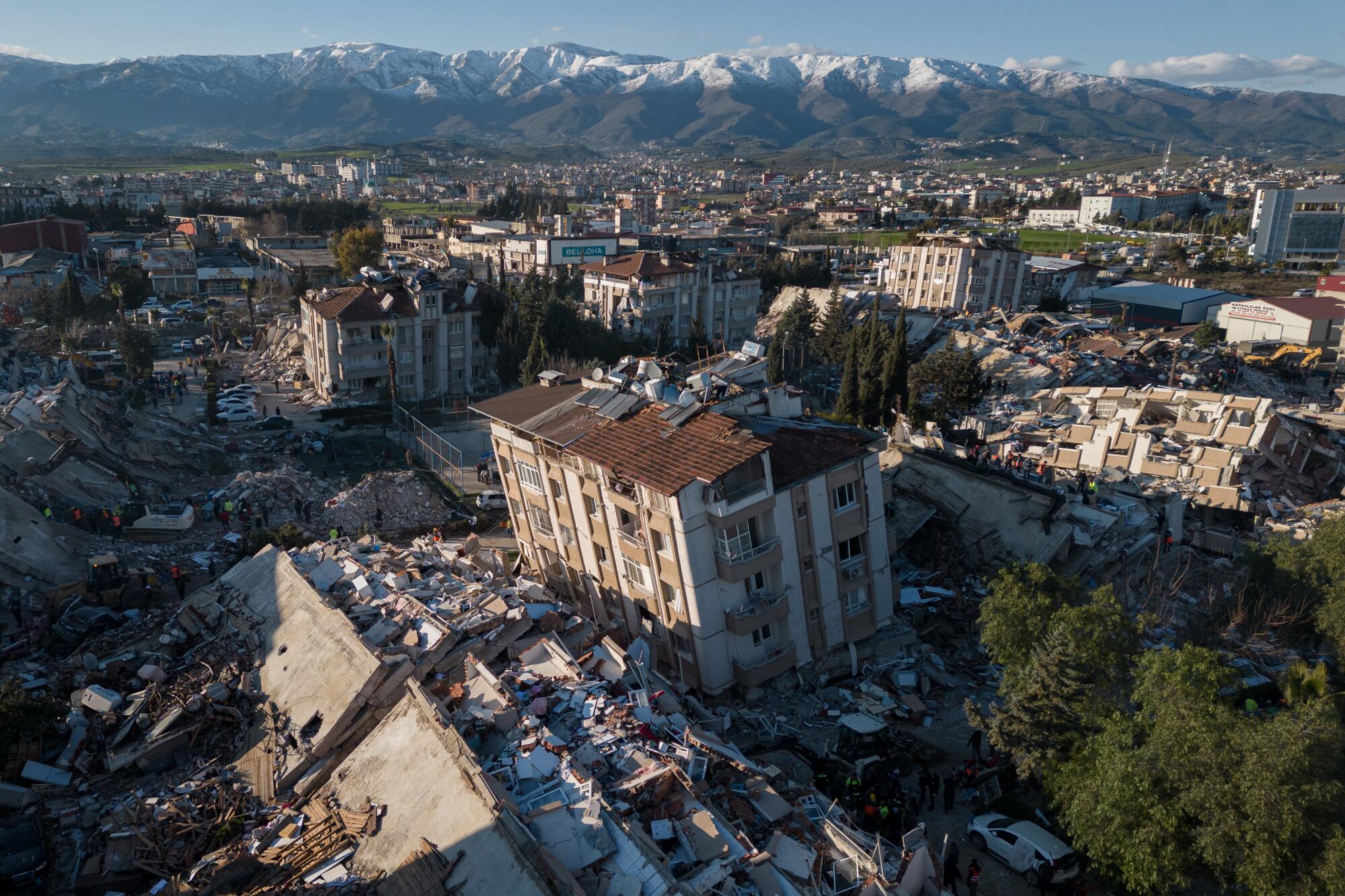
Luqman Ahmad, 31, sat with his friend on a pair of ornate but worn couches. Ahmad had been lucky: Living on the ground floor of a building in Gaziantep, a Turkish city some 100 miles northeast of Antakya and closer to the earthquake’s epicenter, he was able to escape before the building crashed down. But his mother, who lived in a now-ravaged building in Antakya, was still under the rubble.
“It’s been three days and we’ve heard nothing. She’s an old woman. With this cold, I know she’s not alive. I don’t have hope,” he said.
“But I won’t leave until they get her out.”
Specially trained L.A. County firefighters make up one of two U.S. teams assisting in search-and-rescue operations in Turkey and Syria.
More to Read
Sign up for Essential California
The most important California stories and recommendations in your inbox every morning.
You may occasionally receive promotional content from the Los Angeles Times.
